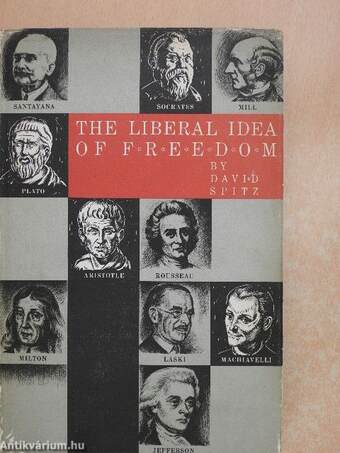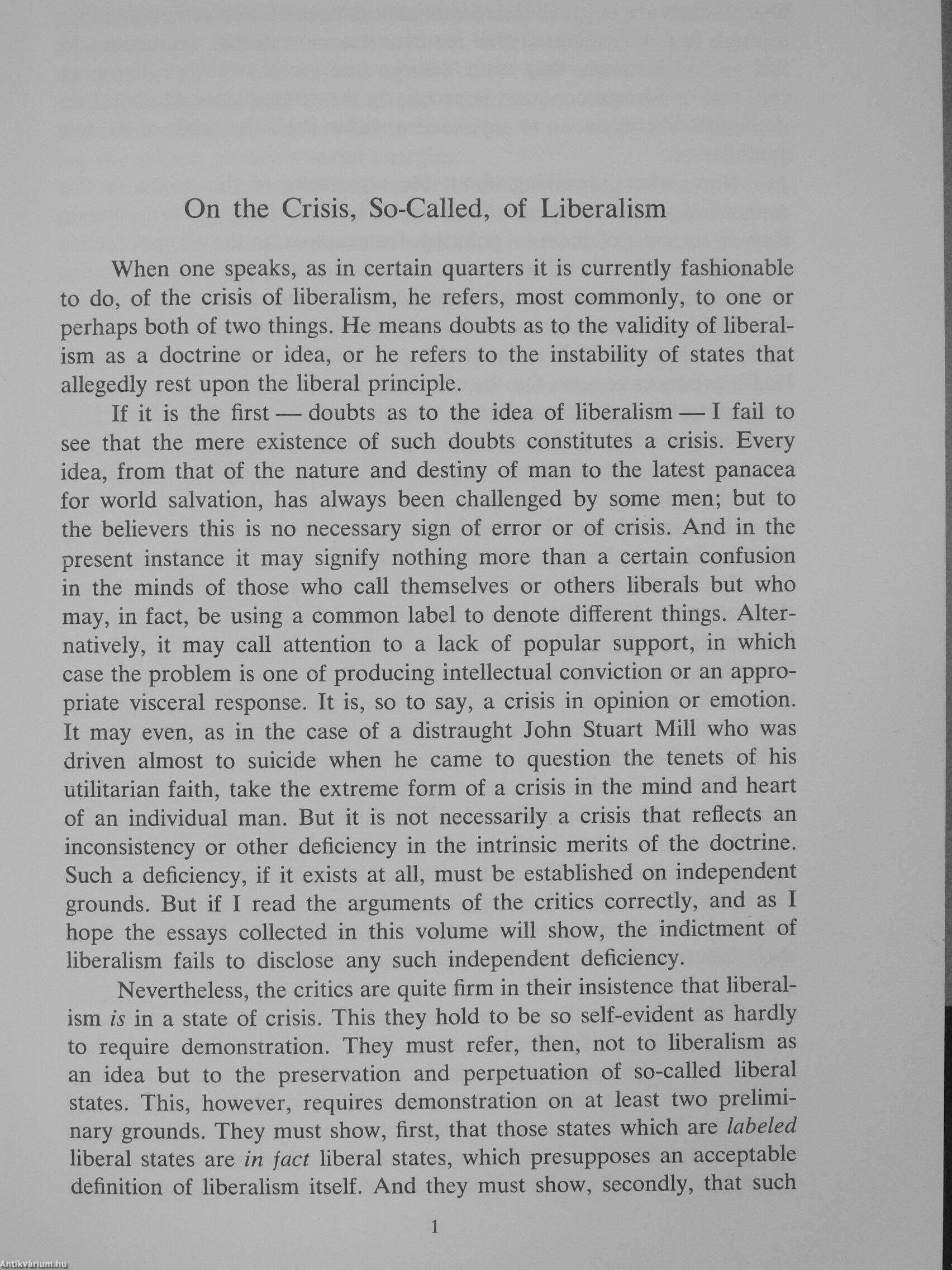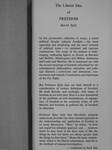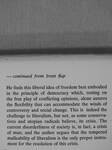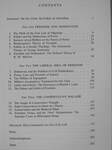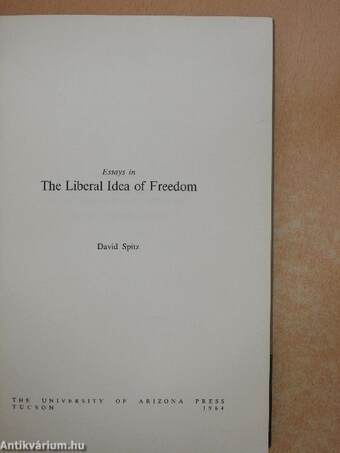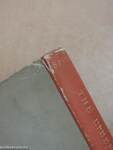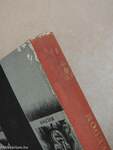1.067.663
kiadvánnyal nyújtjuk Magyarország legnagyobb antikvár könyv-kínálatát

VISSZA
A TETEJÉRE
JAVASLATOKÉszre-
vételek
Essays in The Liberal Idea of Freedom
| Kiadó: | The University of Arizona Press |
|---|---|
| Kiadás helye: | Tucson |
| Kiadás éve: | |
| Kötés típusa: | Vászon |
| Oldalszám: | 210 oldal |
| Sorozatcím: | |
| Kötetszám: | |
| Nyelv: | Angol |
| Méret: | 24 cm x 16 cm |
| ISBN: | |
naponta értesítjük a beérkező friss
kiadványokról
naponta értesítjük a beérkező friss
kiadványokról
Előszó
TovábbFülszöveg
The Liberal Idea of
FREEDOM David Spitz
In this provocative collection of essays, a noted political theorist subjects freedom — the most appealing and perplexing and the most tortured of political terms — to sustained and rigorous examination. The scope of his analysis is wide-ranging, embracing figures as diverse as Socrates and Hobbes, Montesquieu and Milton, Santayana and Laski and Maclver. He is concerned too with the several meanings of freedom articulated by our contemporary philosophers, statesmen, and political thinkers — aristocrats and democrats, conservatives and radicals, Communists and Americans of the Far Right.
But Professor Spitz does not limit himself to a consideration of various definitions of freedom. He deals directly, and excitingly, with issues of freedom in our own time. Here is a new assessment of the problems of civil disobedience, of segregation, of freedom in the economic order, of civil liberties and freedom in political life, of freedom in... Tovább
Fülszöveg
The Liberal Idea of
FREEDOM David Spitz
In this provocative collection of essays, a noted political theorist subjects freedom — the most appealing and perplexing and the most tortured of political terms — to sustained and rigorous examination. The scope of his analysis is wide-ranging, embracing figures as diverse as Socrates and Hobbes, Montesquieu and Milton, Santayana and Laski and Maclver. He is concerned too with the several meanings of freedom articulated by our contemporary philosophers, statesmen, and political thinkers — aristocrats and democrats, conservatives and radicals, Communists and Americans of the Far Right.
But Professor Spitz does not limit himself to a consideration of various definitions of freedom. He deals directly, and excitingly, with issues of freedom in our own time. Here is a new assessment of the problems of civil disobedience, of segregation, of freedom in the economic order, of civil liberties and freedom in political life, of freedom in education.
Professor Spitz finds that liberalism, properly understood, provides the most rational approach to the understanding and application of freedom in its many dimensions. "Man," he writes, "is born not stupid but infinitely ignorant; and . . . however much he may learn in his short span of life, the things he does not know are always greater than the things he does know." Hence his basic commitment, which is the liberal commitment, must be to the methods of rational investigation.
— continued on back flap
— continued from front flap
He finds this liberal idea of freedom best embodied in the principle of democracy which, resting on the free play of conflicting opinions, alone assures the flexibility that can accommodate the winds of controversy and social change. This is indeed the challenge to liberalism, but not, as some conservatives and Utopian radicals believe, its crisis. The current disorderliness of society is, in fact, a crisis of man; and the author argues that the tempered malleability of liberalism is the only proper instrument for the resolution of this crisis. Vissza
Témakörök
- Történelem > Társadalomelmélet
- Filozófia > Témaköre szerint > Filozófiatörténet > Tanulmányok
- Idegennyelv > Idegennyelvű könyvek > Angol > Művelődéstörténet
- Idegennyelv > Idegennyelvű könyvek > Angol > Filozófia > Témaköre szerint > Filozófiatörténet > Tanulmányok
- Idegennyelv > Idegennyelvű könyvek > Angol > Történelem > Egyéb
- Művelődéstörténet > Eszmetörténet > Történelem > Politika
- Filozófia > Témaköre szerint > Szakfilozófiák
- Idegennyelv > Idegennyelvű könyvek > Angol > Filozófia > Témaköre szerint > Szakfilozófiák
- Történelem > Idegennyelvű > Angol
- Filozófia > Témaköre szerint > Társadalomfilozófia > Egyéb
- Idegennyelv > Idegennyelvű könyvek > Angol > Filozófia > Témaköre szerint > Társadalomfilozófia > Egyéb
- Történelem > Politika > Ideológiák > Egyéb



